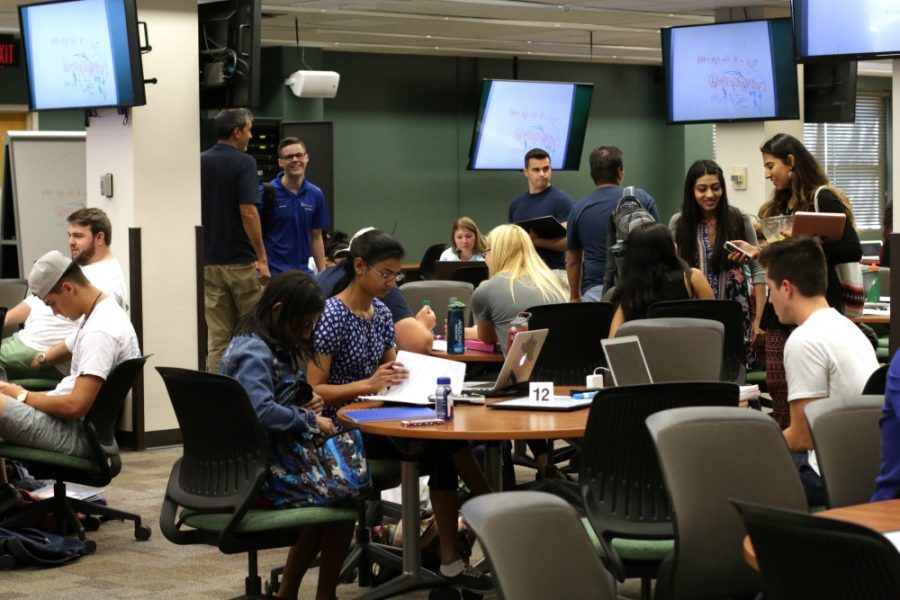Arizona Fifth Congressional District Representative Matt Salmon introduced the Pell for Performance Act last week, which, if passed, will require Pell Grant recipients to graduate within six years or their grants will become loans.
Pell Grants are given to those in financial need regarding education purposes and are provided by the United States federal government.
The difference between a Pell Grant and a loan is that recipients are not required to pay grants back.
“Our education funding policy needs to be revised to incentivize the completion of a college degree, not simply one’s college attendance,” Salmon said. “My bill would encourage Pell Grant recipients to finish their degrees in 150 percent of the published time or the grants would convert to loans that the students would repay to the taxpayer.”
The reasoning behind the act falls on the fact that taxpayers are paying money for students to receive degrees when many do not, even after six years, according to Salmon.
Lauren King, a nursing junior, completed the Free Application for Federal Student Aid and was awarded the Pell Grant based on her expected family contribution to her education expenses.
“I actually don’t think that is a bad idea. Yes, there are circumstances that cause people to need to stay in college longer, but six years is a long time,” King said. “Tax payers pay so much to be able to fund kids like me to go to school that it’s only fair … to help contribute back.”
King said the Pell for Performance Act would not affect her personally, but if it did, it would be hard.
In order to be eligible for a Pell Grant, one must not have a bachelor’s degree and must be able to prove his or her financial need.
Thirty percent of all full-time UA undergraduates are currently receiving Pell Grants. The six-year graduation rate for those beneficiaries is 52.6 percent, according to a Hechinger Report analysis on the Pell Grant receivers’ graduation rate.
Breanna Santos, a pre-law freshman and Pell Grant recipient, said she disagrees with the proposed bill.
Santos said she thinks Pell Grants offer opportunities for students who may not normally be able to take a shot at higher education to try it, even if it’s not for them.
“I think college works for some people and it doesn’t work for some people,” Santos said. “Just because you don’t make enough money to attend school, even if it’s just for a year, doesn’t mean you shouldn’t be allowed the opportunity to see if it works for you.”
Taxpayers have paid over $300 billion in Pell Grants since 2000, according to the press release.
“The result of this is essentially a squandered investment, with the U.S. taxpayer on the hook for billions of dollars in financial aid grants given to students who never earned a degree,” Salmon said. “This has to stop.”
Follow Devon Walo on Twitter.









